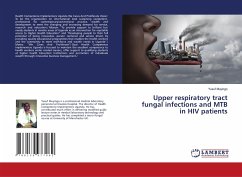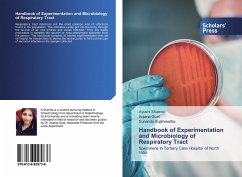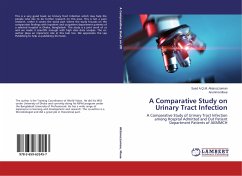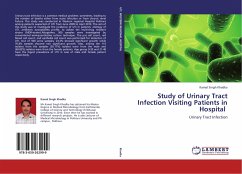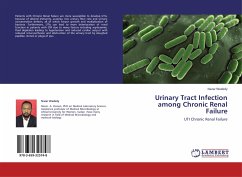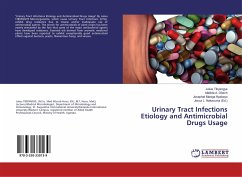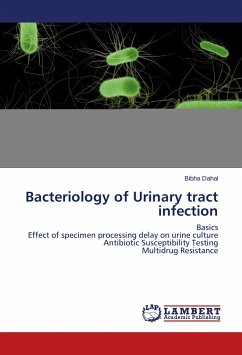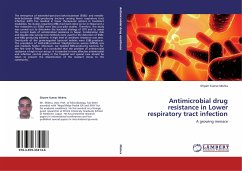
Antimicrobial drug resistance in Lower respiratory tract infection
A growing menace
Versandkostenfrei!
Versandfertig in 6-10 Tagen
51,99 €
inkl. MwSt.

PAYBACK Punkte
26 °P sammeln!
The emergence of extended-spectrum beta-lactamase (ESBL)- and metallo-beta-lactamase (MBL)-producing bacteria causing lower respiratory tract infection (LRTI) has resulted in fewer therapeutic options in treatment modalities. No studies regarding MBLs had been done so far in Nepal and a few researches on ESBLs were also just pilot studies. Therefore, this study was carried out to determine the bacterial etiology of LRTI and to assess the current levels of antimicrobial resistance in Nepal. Combination disk and Double disk synergy test methods were used for the detection of ESBL- and MBL-produc...
The emergence of extended-spectrum beta-lactamase (ESBL)- and metallo-beta-lactamase (MBL)-producing bacteria causing lower respiratory tract infection (LRTI) has resulted in fewer therapeutic options in treatment modalities. No studies regarding MBLs had been done so far in Nepal and a few researches on ESBLs were also just pilot studies. Therefore, this study was carried out to determine the bacterial etiology of LRTI and to assess the current levels of antimicrobial resistance in Nepal. Combination disk and Double disk synergy test methods were used for the detection of ESBL- and MBL-producing bacteria. A high level of antibiotic resistance was seen. One-fourth of the gram-negative bacterial isolates were ESBL-producer. The prevalence of methicillin-resistant Staphylococcus aureus (MRSA) was also relatively higher. Moreover, we isolated MBL-producing bacteria for the first time in Nepal. It is concluded that the problem of antimicrobial resistance is high in our set-up. It is essential to have effective antimicrobial and infection control policy in the hospital and special care should be taken to prevent the dissemination of the resistant clones to the community.




